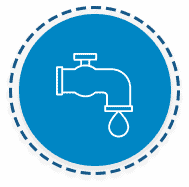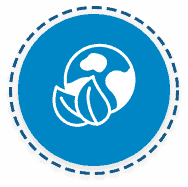Wastewater Treatment Case Studies
Spiral Water Technologies offers a broad range of automated self-cleaning filtration products for high solids separation and concentration, providing proven global wastewater treatment solutions for various industries and applications. Our products enhance the ability to recycle and reuse water while disposing of wastewater. They can filter up to 50 times more solids than traditional backwash separation and filtration technologies, requiring only one pass to deliver water recovery of 99%.
The following case studies highlight the success of our wastewater treatment products, showcasing how we effectively solved various problems with cost-effective, innovative solutions.
- Helping a Fruit and Vegetable Processor Reduce Chemical Costs and Increase System Uptime
- Making the Difference in Reducing Power Plant Downtime
- Putting the Squeeze on Cost and Waste for High Solids Juice Processing
- Delivering Operational Efficiency and Eliminating Downtime for Great Lakes Cargo Carrier
- Reusing Filtered Secondary Effluent at Wastewater Treatment Plants
- Pretreatment of TSS/BOD in Food & Beverage Wastewater
- Solids Removal in Brewery Wastewater
- Advanced Wastewater Solutions by Spiral Water Technologies
Helping a Fruit and Vegetable Processor Reduce Chemical Costs and Increase System Uptime
A fruit and vegetable processor contacted Spiral Water Technologies to address two areas of primary concern:
- How to reduce chemical consumption levels
- How to increase the system’s uptime
-
The Problem
The company, now a valued customer, was using substantial amounts of peracetic acid and chlorine to control potential microbiological issues in their fruit and vegetable processing.
Their closed, continuously flowing system contained freshwater treated with peracetic acid and chlorine. Processing began once the chemicals reached a certain level, and processing stopped once the chemical levels dropped to a certain point, because they couldn’t re-dose the system while it contained organic product. Shutdowns would occur two to three times daily, during which the water could get too warm and cause the vegetables to break down and soften, threatening their integrity and shelf life.
Having to change out the water, re-dose with chemicals, and restart the system multiple times per day was an inefficient, time-consuming process, causing the company to lose money through excessive labor costs and the overuse and waste of expensive chemicals.
-
The Solution
Spiral Water Technologies’ goal was to keep the system operating continuously while consuming fewer chemicals. We removed as much organic material from the process water as possible using our automated self-cleaning filters. Doing so significantly lowered the amount of chemicals needed to treat the system, eliminated daily shutdowns, and kept operations running continuously.
We installed a single Series H-1000 liquid/solid separator with an automatic self-cleaning filter to maximize separation in medium to high flow, high temperature, and high-pressure applications.
-
The Results
The customer successfully lowered their chemical usage by about 30% and decreased chemical costs by 60%. They can now run continuous processing operations without pausing to restart the system, considerably improving processing uptime. The customer has since installed the same liquid/solid separator and filter solution in another one of their facilities.
Making the Difference in Reducing Power Plant Downtime
A hydroelectric power plant in Snohomish County, Washington, contacted Spiral Water Technologies for assistance with eliminating daily plant stoppages caused by clogged bag filters.
-
The Problem
The power plant was using 200-micron bags to filter the water used to cool the mechanical seals on the turbines, which were experiencing daily issues due to the heavy particulate matter in the plant’s water source, the Snohomish River. Due to the high turbidity, employees had to oversee daily operational stoppages to replace or clean the filters. The entire process had become expensive and time-consuming, requiring 24-hour on-call maintenance.
-
The Solution
We installed a Spiral Water Technologies 50-micron filter inline before the mechanical seal water delivery. The automatic, self-cleaning water filter can handle variable and ultra-high Total Suspended Solids (TSS) up to 25,000 mg/L. Its innovative helical action can filter water up to 100 times dirtier, providing continuous 10 to 100-micron filtration while consuming 90% less power.
-
The Results
The installation of our industry-leading filter provided a significant improvement in workflow, and the hydroelectric plant was able to operate continuously without the added expense of daily downtime. Our customer determined that the Spiral Water Technologies filter will pay for itself within one season of use.
Putting the Squeeze on Cost and Waste for High Solids Juice Processing
A pomegranate grower/producer in Stockton, California, was experiencing 13% product loss and high operating expenses while processing its pomegranate juice.
-
The Problem
The company was trucking its raw pomegranate juice to an off-site separation system. The extreme centrifugal forces applied to the juice had an adverse effect on the flavor. During the separation process, for every 3,000-gallon batch, approximately 400 gallons of product was lost in processing. Given the product’s high retail value, the problem was creating a significant business expense.
-
The Solution
We installed a skid with a Spiral Water Technologies 15-micron Model 810 filter that features our proprietary, automatic, self-cleaning filter. The innovative spiral action facilitates high, variable suspended solid removal, and it’s designed to filter up to 100 times dirtier water while providing continuous 10 to 100-micron filtration. The filter utilizes 90% less energy compared to conventional filtration systems.
-
The Results
Our innovative filtration technology provided the following benefits for the customer:
- More product
- Better flavor
- Reusable solids
The Model 810 filter provided increased filtration of the pomegranate juice from 8% solids to 1% solids. It also reduced the product loss from 13% to only 1.7% per 3,000-gallon batch. Plus, the concentrated solids, once considered a waste product, are now a sellable asset to agricultural and cosmetic companies that can benefit from the texture and nutrients of the solids.
Delivering Operational Efficiency and Eliminating Downtime for Great Lakes Cargo Carrier
Used primarily to transport iron ore across the Great Lakes, the American Spirit is a bulk cargo carrier powered by two heavy fuel-burning Pielstick diesel engines.
-
The Problem
The engines require a freshwater diesel emission scrubber for removing gas emissions, soot, and other particulate byproducts. However, the freshwater from the lake used for the scrubber often contains heavy solids that clog the nozzles, leading to operational downtime and time-consuming manual cleaning.
Self-cleaning nozzles are typically expensive and ineffective. Multiple filters add additional maintenance and cost, so the ship owners wanted a better solution.
-
The Solution
Spiral Water Technologies installed two 50-micron Model 810 filters that operate at 65 gpm and function as pre-filters for the water feed of the scrubber.
-
The Results
Eliminating the clogged nozzles allowed the American Spirit to operate more efficiently. With the removal of heavy solids from the freshwater feed, the diesel scrubber is working as intended, effectively maximizing uptime and reducing nozzle maintenance. A simple, cost-effective solution solved a costly problem, helping increase efficiency for consistent operations.
Reusing Filtered Secondary Effluent at Wastewater Treatment Plants
Wastewater treatment plants monitor and reuse secondary treated effluent for cleaning screens, diluting chemicals, and foam control. While secondary effluent can prove more economical than potable water for these applications, a common challenge of reusing wastewater is the cost-effectiveness of filtering.
-
The Problem
Most automatic self-cleaning filters use automatic back-flushing or suction scanning technology, which leads to premature failure caused by biofilm growth on the screens. The continuous failure and resulting maintenance requirements cause treatment plants to remove or bypass these important protective filter systems.
-
The Solution
Spiral Water Technologies Model 810 Automatic Filter can handle secondary effluent and is not affected by biofilm growth. It consists of a patented, spiral-shaped wiper and metal filter screen that continuously cleans the screen without crossflow, backflush, or downtime. The innovative filter cleans itself over 500 times per minute, and solids get collected away from the filter at the bottom of the housing, allowing filtered water to flow continuously through the outlet.
-
The Results
The Model 810 filter reduced TSS with no chemicals or pollutants added to the wastewater stream. The metal filter screen and wiper only need to be replaced every two years, and maintenance routines involve quarterly cleaning and inspection.
Pretreatment of TSS/BOD in Food & Beverage Wastewater
Food processor Del Rey Packing Co., based in central California, manufactures and packages high-quality raisins for worldwide distribution. The continuous wastewater stream created from the dehydration and packaging of the raisins was not reusable and contained TSS and BOD values in the thousands.
-
The Problem
High levels of Total Suspended Solids (TSS) and Biological Oxygen Demand (BOD) are expensive to treat. Food and beverage wastewater streams can have TSS and BDD values in the thousands, yet most publicly-owned treatment facilities can only manage wastewater streams with values less than 300 mg/L. While pretreatment at the food processing plants can help improve the process, capabilities are limited because of the small footprint and inability to do so at a low cost. In addition, conventional automatic filter technologies cannot handle applications with high TSS values.
Working with the local industrial wastewater treatment plant, Del Rey attempted to lower these values, trying everything from a reverse osmosis system to shaker beds, but was unsuccessful.
-
The Solution
The Spiral Water Model 1000 automatic filter has a patented, spiral-shaped wiper that continuously cleans the metal filter screen without downtime, backflush, or crossflow. Our filter can clean more than 500 times per minute, reducing TSS and BOD without pollutants or chemicals added to the wastewater stream.
-
The Results
Spiral Water Technologies successfully reduced TSS and BOD values even in the presence of fats, grease, and oils at a fraction of the cost of other technologies. Requiring only a sump pump to operate, our solution helped the customer reduce TSS levels by 61% and BOD values by 48% within the first month of operation, relative to the previous five months without our solution.
Solids Removal in Brewery Wastewater
Brewery wastewater has considerable amounts of organic matter, such as spent grains, yeast, and hops. Many breweries install onsite pre-treatment systems to remediate wastewater before it gets discharged to the municipal wastewater treatment plant, surface water source, or septic system. A bioreactor reduces the organic matter and converts it to biogas. However, bioreactors function better on dissolved solids since suspended solids reduce the liquid fraction and efficiency of the bioreactor.
-
The Problem
A wastewater operator from a Northern California brewery contacted us to address problems with their bioreactor. The back-flushing automatic filter was unable to remove suspended solids. Their secondary system was expensive to operate and incapable of handling peak solids loading. When solids spilled into the removal system, they displaced the liquid and filled the working volume of the bioreactor. The smaller working volume significantly reduced the capacity and amount of wastewater able to be treated. This inefficiency in the brewery process resulted in less beer and reduced revenue.
-
The Solution
We analyzed the brewery wastewater for Particle Size Distribution (PSD) and TSS. We installed our Model 1000 liquid/solid separator with an automated self-cleaning filter (25-micron screen) built to handle ultra-high and variable TSS. Since our filters do not need backwash to clean the filter screen, the system can concentrate solids to a high degree.
-
The Results
Our automatic filter unit was able to reduce Chemical Oxygen Demand (COD), handle an average TSS of 1827 mg/L with peaks of 3728 mg/L, and significantly reduce TSS values in the brewery wastewater.
Advanced Wastewater Solutions by Spiral Water Technologies
Most conventional filters cannot process high solid loads above 500 ppm, making them insufficient for many industrial operations. However, our high-quality filters are not only beneficial in wastewater treatment applications but significantly contribute to the reduction of the total lifecycle cost while providing the following benefits:
Reduced equipment redundancy
Lower labor costs
Less water waste
Smaller footprint
Lighter weight
Eco-friendly
Contact us to learn more about the wastewater treatment solutions offered by Spiral Water Technologies.
- Helping a Fruit and Vegetable Processor Reduce Chemical Costs and Increase System Uptime
- Making the Difference in Reducing Power Plant Downtime
- Putting the Squeeze on Cost and Waste for High Solids Juice Processing
- Delivering Operational Efficiency and Eliminating Downtime for Great Lakes Cargo Carrier
- Reusing Filtered Secondary Effluent at Wastewater Treatment Plants
- Pretreatment of TSS/BOD in Food & Beverage Wastewater
- Solids Removal in Brewery Wastewater
- Advanced Wastewater Solutions by Spiral Water Technologies






